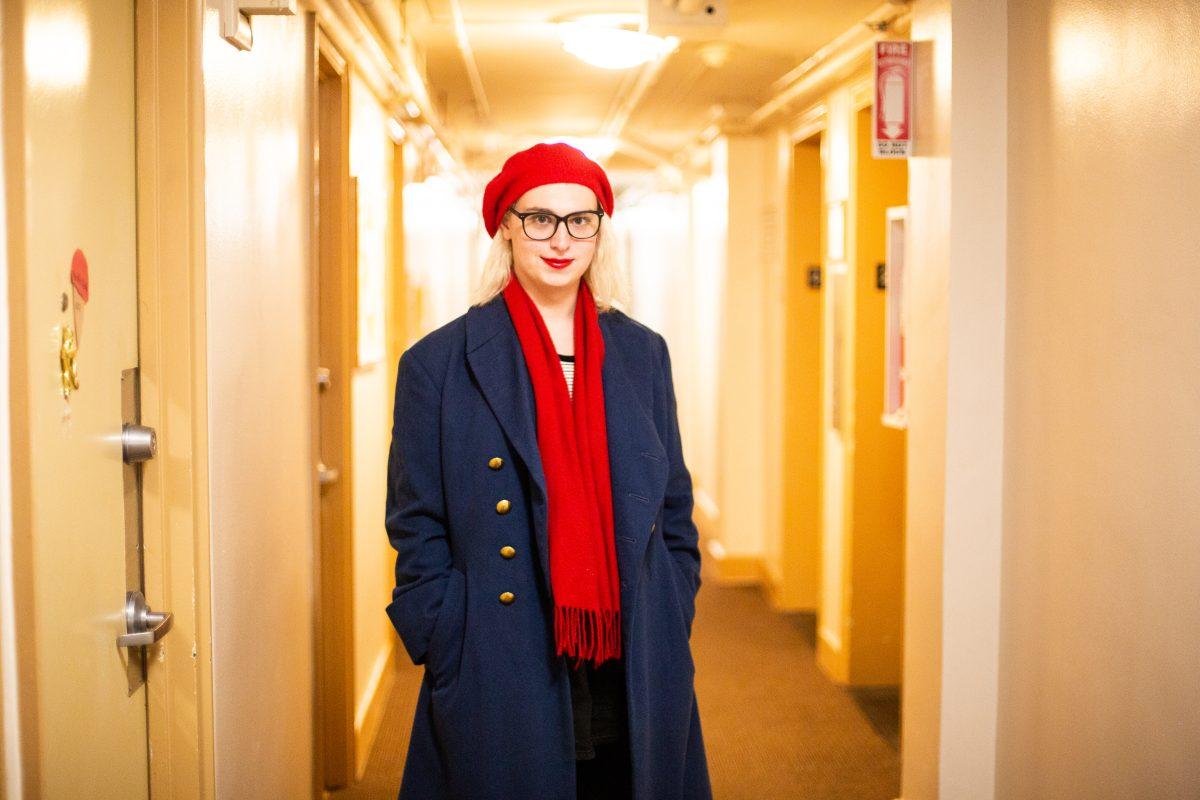University weighs gender-inclusive housing options
The university has in the last five years been working on creating an official gender-inclusive housing option for students who identify as transgender.
The Office of Residence Life currently works with students who identify as transgender on a case-by-case basis to place them in housing that matches their gender identity, said Jessica Moran-Buckridge, director of Residence Life.
Transgender students are not allowed to have roommates.
“We have not been able to assign roommates to them at this time,” Moran-Buckridge said. “Best practices are telling us different things every year, so that is something that I think we would be wanting to address in the very near future, but at this point, we have not been able to do that.”
Students who identify as transgender and are seeking on-campus housing are instructed on the housing application to contact the Office of Residence Life directly or to complete a Medical Need Request.
Meredith O’Reilly ’20 said she shared a room with another student when she lived in a residence hall her freshman year. In her sophomore year she said she came out as transgender and was told she would not be allowed to have a roommate. She has since lived by herself in a double room in her residence hall.
“Coming home to a cold dark apartment every day feels, not necessarily segregated, but everyone else I know talks about their roommates, and about what’s going on in their apartment,” O’Reilly said. “I just go home, and that’s it.”
O’Reilly said transgender students should be allowed to have roommates if both parties agree to it.
“If the roommate signs something saying that they are alright with the situation, there is no reason they shouldn’t be granted a roommate,” O’Reilly said.
A review of the home pages for student housing options of the 28 Jesuit schools in the United States show that four have gender-inclusive housing policies— Gonzaga, Fairfield and Georgetown universities and the University of San Francisco. In the Philadelphia area, Temple University, Drexel University, The University of Pennsylvania and The University of the Arts have gender-inclusive housing programs for their students.
According to Campus Pride, a non-profit that supports the rights of LGBTQIA college students, about 267 U.S. universities and colleges offer gender-inclusive housing, in which students are allowed to have a roommate of any gender.
“I think our missions are different, being a Catholic-Jesuit institution that is, for better or worse, different than the mission of the public university,” Moran-Buckridge said.
Moran-Buckridge said Residence Life has made progress to be more accommodating to students who identify as transgender.
“We know it is the best thing to do. We know it is the right thing to do,” said Moran-Buckridge. “And there is an actual student need and an increasing amount of students who are asking for [gender-inclusive housing].”
Along with recent proposals to establish an official gender inclusive housing program, there have been changes made to the on-campus housing application. On the application, there are instructions to call a phone number if the student’s sex at birth doesn’t match the student’s gender identity. The option for a student’s sex at birth is pre-populated in the form, carried over from whatever the student selected— male or female— in the Common Application, or via the direct application through St. Joe’s. There are no specific options on St. Joe’s housing application for gender identity.
O’Reilly said she initially communicated with Residence Life through email after she came out as transgender, but to get a definitive answer if she could be placed in on-campus housing, she had to visit the office in person. Although Residence Life was able to place her in an apartment, she said she found the housing application process stressful.
O’Reilly said she has seen some of the the changes that Residence Life has made, but she wishes they would do more.
“It’s a nice effort that they’re trying, but it is not enough,” O’Reilly said. “It’s not what needs to be done. What needs to be done is gender-neutral housing. An entire building dedicated to gender-neutral housing would be the best option for students, but that’s ideal and that’s lofty. Realistically, I would like to see an entire floor that is dedicated to gender-neutral housing.”
Rachel Cox ’19, who identifies as non-binary, has worked with Moran-Buckridge and Kelly Bersett, associate director of Housing & Operations, in Cox’s capacity as chair for Residence Life on University Student Senate.
“I have seen that they are very willing to help and do what they can,” Cox said. “They just don’t know what they can do because of this overall uncertainty of the university.”
Cox said transgender students suffer without the university’s full support.
“In my time here I have seen a lot of areas where St. Joe’s needs to bolster their supports for marginalized students,” Cox said. “The amount of supports for trans students that I have seen are nonexistent. I know there are individual people on campus that are willing to do whatever they can, but overall the university as a whole does not support any trans or non-binary students.”
O’Reilly said St. Joe’s should follow other Jesuit schools and establish a gender-inclusive housing program that serves all students.
“Fix my name on my ID, let me live with someone, let me have friends,” O’Reilly said.













































